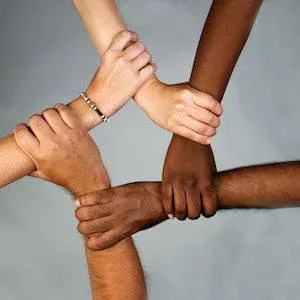
Dear Book World: Stop Making Excuses For Your Race Problem
I look forward to The Millions’ A Year In Reading feature every year. It’s a welcome break from listicles and best ofs- they pull together some of their “favorite writers and thinkers” to talk about their best, most revelatory reading experiences of the year. This year, there’s a problem. Their favorite writers and thinkers so far are, with the single exception of Celete Ng (who wrote my favorite book of the year, Everything I Never Told You), entirely white people.*
The event isn’t over, and when I pointed out the laughably bad imbalance on Twitter, the founder of The Millions let me know that there are some people of color coming down the line:

and that they had invited a few more brown folks, but their schedules didn’t permit them to participate:@ImAmandaNelson Still TK: Porochista Khakpour, Tiphanie Yanique, Dinaw Mengestu, Rabih Alameddine, Yiyun Li
— cmaxmagee (@cmaxmagee) December 10, 2014
I understand, from an editor’s position, the need to defend your arena from pointed criticism, especially about something as volatile as race. But I also understand, from an editor’s position, the difference between intentions and actions when it comes to claiming that diversity is important to your publication. Your audience doesn’t see your intentions, which makes them largely irrelevant. Your audience sees what you put out- and The Millions has, so far, put out white people. If balance matters, you invite more people of color. If balance matters, you KEEP inviting more people of color until you have a schedule that is equitable. If balance matters, you aren’t satisfied with having tried to do the thing, you are satisfied when you have done the thing. But let’s back up: this is just a small fractal image of the bigger, cyclical racial issue in publishing and books. It starts here: publishing employees- 89% of whom are white– publish white authors and put publicity dollars behind them. Publications (like The Millions) feature those white authors, which leads to those white authors selling more books than non-white authors. Sales and exposure leads to buzz, which leads to more sales, which leads to more buzz, which leads to an almost entirely white group of winners in the Goodreads Choice Awards. As the Goodreads Choice results show, we buy and read what we’re sold. As much as readers want to paint ourselves as lofty, independent thinkers, book buyers (and borrowers from the library, who influence library purchases) are ultimately consumers, and are as subject to the forces of advertising and publicity as consumers in any other industry. What we’re being sold is a stable of homogenous writers, who are then almost exclusively featured in the publications we love, mostly as a result of bad organization, laziness, or lack of awareness. Publishing is a small game- go to any party at Book Expo America in New York every year and you’ll see the same faces over and over- so it’s no surprise that a white echo chamber produces more white noise. The Millions’ A Year In Reading lists so far just prove this point: of authors championed by the almost entirely white lineup, only 12.6% (27 of 214 authors mentioned, and yes, I counted) are people of color, and when you remove guest authors and just count the books touted by staff contributors and contributing editors, only 10% (8 of 80) are not white- a number that certainly can’t be blamed on poor scheduling. A publication has to be purposeful to break out of that vacuum. And in a time when lazy watermelon jokes are still being made at a National Book Award Winner’s expense, when a major bookstore in New York can release a grand opening video that is a minute and a half long and doesn’t show a single person who isn’t white in it, when there can be zero African-Americans on the New York Times best-seller list in an entire year- being purposeful about it is paramount. While we wait for the problem to be addressed at the root (like through the publishing internships for diverse students coming from We Need Diverse Books, which will help address publishing’s whiteness), the book world at large needs to stop making excuses for itself. Everyone deserves to see themselves in stories, and that will only happen if every link in the chain- from publishers to bloggers to big book media sites to traditional newspaper book sections to, yes, readers- stops shining light and money and adoration only on authors who look like them. Until then, we can all say that diversity is important to us- but where’s the proof? *Since writing this this morning (and since my Twitter conversation with their founder) The Millions have pushed two A Year In Reading posts by people of color: Tiphanie Yanique and Porochista Khakpour. Yanique and Khakpour added 10 people of color to the overall recommendations of this year’s feature and by themselves increased the percentage of POC spotlighted in the feature to 16%. See what I mean about how featuring almost exclusively white people creates a racial echo chamber, while allowing for and encouraging diversity does the opposite? ____________________ Did you know that Book Riot has a YouTube channel? We do. It’s new and we are having fun with it. Check it out here.@ImAmandaNelson Also invited Roxane Gay, Saeed Jones, Marlon James, James McBride, Ruth Ozeki but their schedules did not permit
— cmaxmagee (@cmaxmagee) December 10, 2014










